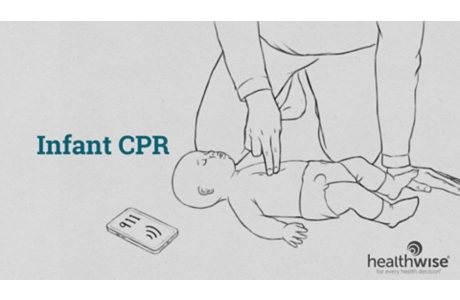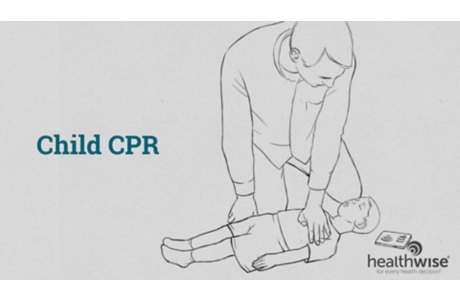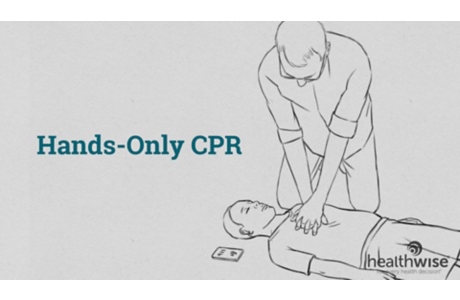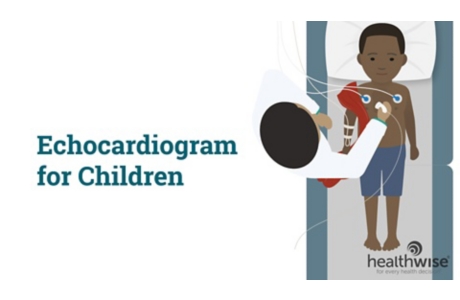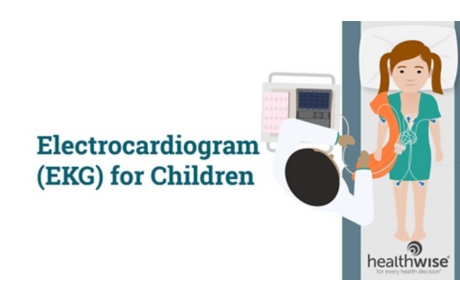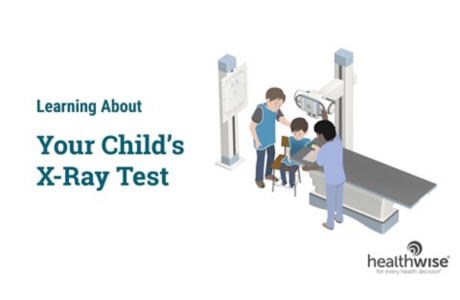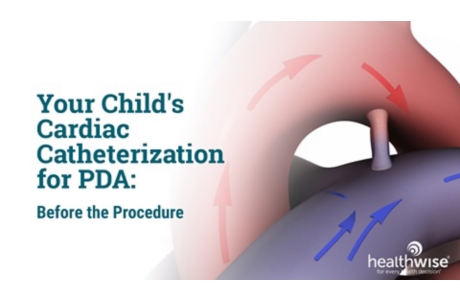Condition Basics
What is congenital heart disease?
Congenital heart disease refers to problems with how a baby's heart forms. "Congenital" means that the heart problem has been present since birth.
There are many different types of congenital heart problems. They can be fairly simple, such as a hole between the chambers of the heart or a heart valve that has not formed right. Others are more serious and complex, such as a missing heart valve or heart chamber.
Most problems affect how blood flows through the heart or through the blood vessels near the heart. Some problems may cause blood to flow in a pattern that isn't normal. Others can completely or partially block blood flow.
Some problems are discovered in the fetus during pregnancy. Others aren't found until birth. Still others may not be discovered until a child gets older or even until a child is an adult.
What causes it?
In most cases, the cause of congenital heart disease isn't known. But genes passed down from a parent are a possible cause. Viral infections also may play a role. Taking some prescription or other medicines during pregnancy may cause congenital heart disease.
What are the symptoms?
Symptoms of congenital heart disease will depend on what problem your baby has. Your baby may have symptoms such as tiring quickly, sweating easily, or having trouble breathing. Or your baby may not have symptoms at birth but may have them later.
How is it diagnosed?
Congenital heart disease in children may be found before or after birth. A fetal echocardiogram may be used to diagnose a problem before birth. After a doctor suspects a heart problem, your baby will probably need several tests. These include a chest X-ray, an echocardiogram, and possibly a cardiac catheterization.
How is congenital heart disease treated?
Your child's treatment will depend on the type of congenital heart disease. Some problems get better on their own and may not need treatment. Medicine may be used to treat a problem or prevent complications. Some problems are repaired using a thin tube called a catheter. More complex problems may need surgery.
What Increases Your Risk
In most cases, the cause of congenital heart disease isn't known. But certain things increase the chance of having congenital heart disease. These include:
- Family history. A child's risk for having a congenital heart problem increases if a brother, sister, or parent has one.
- Other genetic conditions. For example, Down syndrome has been linked to these problems.
- Premature birth. Babies born too early have a higher chance of having congenital heart disease.
- Chronic conditions during pregnancy. Babies born to people with diabetes or phenylketonuria have a higher chance of having a heart problem.
- Use of alcohol or drugs during the pregnancy.
Symptoms
Congenital heart disease causes a wide range of symptoms. Symptoms will depend on what problem your baby has. Babies with congenital heart disease may have one or more of these symptoms:
- Tiring quickly.
- Trouble breathing when the baby feeds or cries.
- Breathing fast during rest or activities.
- Puffiness or swelling of the skin, often around the eyes and in the hands and feet.
- Sweating easily, especially on the head.
- Not gaining weight as they should.
- Fainting or near-fainting spells, especially related to physical activity.
- Having strong-smelling urine or other signs of dehydration.
- Having a bluish tint to the skin, lips, and fingernails that gets worse when the baby cries or eats.
- Growing or developing more slowly than expected. Your baby may be shorter or take longer to learn skills.
In some cases, a child's congenital heart disease may be so mild that symptoms won't appear until the child is a teenager or young adult.
What Happens
Congenital heart disease may cause problems with blood flow through the heart after a baby is born. The problems can affect the baby's blood and oxygen supply.
Congenital heart disease includes many types of problems. If the problem lowers the amount of oxygen in the body, it is called cyanotic. If the problem doesn't affect oxygen in the body, it is called acyanotic. Most problems require treatment. Other problems get better on their own and don't require treatment.
Not all problems are found when a child is very young. Some don't cause symptoms and aren't life-threatening. These problems may not be found until the teen years or later.
Most children with congenital heart disease grow up and live full and healthy lives as adults. But some adults have a shorter life span than average if the problem is severe or if heart failure or other complications happen.
Problems that can happen with congenital heart disease
Most children and adults with congenital heart disease lead healthy lives. But the treatments they've had or the heart problem itself can cause or be related to long-term problems. These include:
- Developmental delays or disabilities or behavior problems.
- Certain physical traits, such as smaller-than-average adult height and weight, clubbing, or cyanosis (bluish tint to the skin, lips, or nails from low blood-oxygen levels).
- Other heart problems, such as heart failure.
- Health problems in adults, such as lung or kidney disease.
When to Call a Doctor
Call 911 or other emergency services immediately if your child has severe difficulty breathing, faints, or has seizures.
Call your doctor now if your child with congenital heart disease has:
- Symptoms of heart failure, such as difficulty breathing or swelling in the belly, legs, ankles, or feet.
- Symptoms of cyanosis—the bluish tint that affects skin, lips, or nails because of lack of oxygen—that may become significantly worse within a short time period.
- Symptoms of a poor appetite, such as sweating while eating or having a rapid heartbeat or rapid breathing while eating.
- Symptoms of endocarditis, such as a fever that won't go away.
- Symptoms of dehydration, such as sunken eyes with few tears, a dry mouth with little or no spit, and little or no urine for 6 hours.
Watch closely for changes in your child's health, and be sure to contact your doctor if:
- Your child has less energy or seems to be sleeping more than usual.
- Your child isn't gaining weight.
Watch
Exams and Tests
Testing for congenital heart disease can be done during pregnancy or after a baby's birth. In many cases, congenital heart disease is found at birth or during a baby's first few months.
Tests during pregnancy
A fetal echocardiogram is the best test before a baby's birth. The test uses sound waves to take pictures of the baby's heart. The fetal echocardiogram may be done if:
- A parent has congenital heart disease.
- The baby may have been exposed to certain chemicals during pregnancy.
- The parent has taken medicines during pregnancy that may increase the baby's risk of developing heart problems.
- Other exams or tests show signs that a baby may have a problem related to the heart's structure.
Tests after a baby is born
A newborn screening test may find a heart problem. The test is called an oximetry test. It checks the oxygen level in the blood.
Congenital heart disease can also be found in the first month after a baby is born. Your doctor may take a medical history, do a physical exam, and ask about the baby's symptoms, appetite, and other habits. Your baby will get other tests to find a heart problem.
Not all problems are found when a child is very young. Some problems don't cause symptoms and aren't life-threatening. These problems may not be found until the teen years or later.
Tests that can help diagnose a heart problem include:
- Echocardiogram. The doctor may use this test to see how blood flows through your child's heart and to look at the valves, thickness, and shape of the heart.
- Cardiac catheterization. This test measures blood pressure in the heart and heart arteries. It can also show how well the heart is pumping.
More tests may be needed, depending on the symptoms and type of problem. These may include:
- Chest X-ray. This is to check the size and blood vessels of the heart.
- Electrocardiogram (ECG, EKG). This test checks for irregular heart rhythms (arrhythmias) that may be related to congenital heart disease.
- Blood tests. These check for anemia, polycythemia, or levels of certain chemicals in the blood.
- Oximetry. This is to see whether oxygen-poor blood is being pumped to the body. The amount of oxygen in the blood can also be measured by an arterial blood gas (ABG).
- CT scan or MRI of the heart and major blood vessels. This is to view abnormal heart structures and/or blood vessels. During these tests, your child will probably be given medicine to help your child relax and sleep.
Learn more
Watch
Treatment Overview
Treatment is based on the type of problem. Some types of congenital heart disease get better on their own and may not need treatment. Your child's age, size, and general health also are important.
A child may need:
- Medicines. Medicine may be used to help treat certain types of congenital heart disease, help relieve symptoms, or prevent other problems.
- Cardiac catheterization. The doctor threads a thin, flexible tube (catheter) through a blood vessel—typically in the groin—and into the heart. Some problems can be repaired using this procedure.
- Surgery to repair the problem. A baby with a large or complex problem may need one or more heart surgeries.
Your child will also need regular visits to a pediatric cardiologist.
Self-Care
Taking care of your child
- Have your child take medicines exactly as prescribed. Call your doctor if you think your child is having a problem with a medicine.
- If your child has trouble eating, work with a registered dietitian. Some children may have a hard time eating and getting enough calories.
- Make sure that your child gets all the recommended vaccines, which helps keep your child healthy. Make sure family members and people who are in close contact with your child also get recommended vaccines.
- Congenital heart disease can increase your child's risk of an infection in the heart. Talk to your doctor about your child's risk. Your child may need to take antibiotics before certain dental or surgical procedures to prevent infection. Also be sure your child takes good care of their teeth and gums.
- Ask for support. Your child's care team can help you and your child. They can refer you to a counselor. They can also give you information for support groups of parents who have children with congenital heart disease.
- Learn how to do CPR and rescue breathing. It is important to know this in case your child stops breathing.
- Learn what to do if your child has "blue spells." These may happen if the blood going from the heart to the body is a mix of oxygen-poor and oxygen-rich blood. The body may not get enough oxygen. When this occurs, a child can have a bluish tint to the skin, lips, or fingernails. Tell your child's doctor when a blue spell occurs.
Learn more
Watch
Medicines
Medicines may be used to treat congenital heart disease until the problem can be repaired. Some children and adults need to take medicine even after the problem is repaired. Children with certain types of congenital heart disease that can't be completely repaired may have to take medicines for a long time.
Treatment with medicines depends on the:
- Type of problem. Complex cyanotic congenital heart disease usually needs treatment with medicines more often than acyanotic congenital heart disease.
- Size of the problem. Children with large or complex problems are likely to have symptoms. They may need medicines to help with their symptoms.
Medicines may be used to:
- Treat complications and help symptoms.
-
- Diuretics lower the amount of extra fluid in the body.
- Digoxin increases the strength of the heartbeats.
- Vasodilators widen blood vessels. This helps blood to flow more easily.
- Antiarrhythmics treat and prevent irregular heartbeats.
- Treat certain problems.
-
Prostaglandins and prostaglandin inhibitors help keep open or close a fetal blood vessel that normally closes at birth. This valve is called the ductus arteriosus.
- Prevent other problems.
-
- Make sure that your child gets all the recommended vaccines, which helps keep your child healthy. Make sure family members and people who are in close contact with your child also get recommended vaccines.
- Antibiotics before some dental and surgical procedures help prevent endocarditis in some people.
- Blood thinners lower the risk of blood clots in the heart or in blood vessels. They include aspirin and anticoagulants.
Learn more
Surgery
Surgery and catheterizations are used to repair many types of congenital heart disease.
The kind of surgery will depend on what type of problem the child has. Surgery may:
- Close holes or blood vessels that have either formed or not closed.
- Make arteries wider.
- Repair or replace valves that are too tight or that leak too much.
- Return the aorta or pulmonary arteries to the right position.
In rare cases, a heart transplant may be needed.
With catheterization, a doctor threads a thin, flexible tube called a catheter through a blood vessel into the heart. The doctor can check the heart and treat a problem.
Learn more
Watch
Related Information
Credits
Current as of: June 24, 2023
Author: Healthwise Staff
Clinical Review Board
All Healthwise education is reviewed by a team that includes physicians, nurses, advanced practitioners, registered dieticians, and other healthcare professionals.
Current as of: June 24, 2023
Author: Healthwise Staff
Clinical Review Board
All Healthwise education is reviewed by a team that includes physicians, nurses, advanced practitioners, registered dieticians, and other healthcare professionals.
